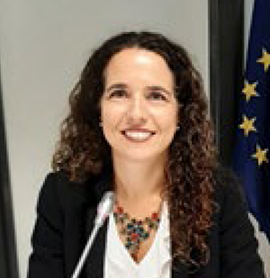
© iStock by Getty Images - 1182604339 ipopba
The Observatory monitors and analyses the latest trends and data in the online platform economy. The insights produced by the observatory help the Commission in policy-making for the online platform economy.
The Observatory is made up of a group of Commission officials and a dedicated expert group of prominent independent experts. The different elements of the Observatory complement each other so that it can provide the most relevant and high quality analysis to the Commission.
The Observatory is part of the rules for platform-to-business trading practices. It contributes to the Commission's wider strategy for a fair and safe online economy in the EU.
The support study
A dedicated study carried out by independent contractor under the supervision of the Commission supports the work of the observatory. The first final report has been published together with its annexes and 8 analytical papers.
It gathers data, analyses trends and supplies the observatory with the information it needs for its work.
The expert group
The expert group supports the Commission in monitoring the evolution of the online platform economy for evidence-based and problem-focused policymaking.
In this role, the expert group has several tasks:
- advise the Commission on the main trends of the online platform economy;
- analyse potentially harmful practices within the online platform economy, including:
- issues related to algorithmic decision-making and ranking, including the question of transparency;
- access to, and use of, different categories data, including personal data;
- issues related to remuneration for material displayed online, in particular in relation to search results;
- transparency and accountability in business-to-business commercial relations in online advertising;
- differentiated treatment when business users on platforms compete with products offered by the platform;
- restrictions on business users by platforms for offering different conditions when using other distribution channels;
- possible impacts of these potentially harmful practices on consumers.
- assist the Commission in the preparation of its annual work programme regarding these issues;
- analyse the evolution of policy measures related to the online platform economy in the Member States, the Union or in third countries;
- communicate with other relevant experts or centres of excellence upon the request and supervision of the Commission.
As this group was set up by a Commission Decision, it is part of the Register of Commission expert groups.
The final reports by the first group of experts were made public in February 2021 following stakeholder feedback and reactions on the progress reports, which were published for consultation in July 2020.
The observatory followed 8 workstreams:
- Work stream 1: Online advertising
- Work stream 2: Infrastructural Power of Platforms
- Work stream 3: Innovation workshop series
- Work stream 4: Platform Governance
- Work stream 5: Algorithmic Discrimination in Platform Economy
- Work stream 6: Use of platforms technologies (big data and AI) in autocratic countries
- Work stream 7: oversight and enforcement
- Work stream 8: Contribution to Evaluation of P2B Regulation
Members of the expert group
Following a competitive selection process for the 2nd term of the expert group, the Commission has appointed 15 high-profile experts (.pdf) as members of the expert group for the EU Observatory on the Online Platform Economy:

Chairman: Alexandre de Streel
Professor of EU law at the University of Namur, Belgium and Academic Co-Director at CERRE, Belgium

Professor of German and European Private and Business Law and Private International Law at the University of Osnabrück, Germany

Full Professor of Law, Civil Law Faculty, University of Ottawa, Canada

Professor of Economics at Bocconi University, Milan, Italy

Associate Professor of Competition Law at Tilburg University, Netherlands

Associate Professor at the Université Paris-Dauphine and President of Renaissance numérique, France

Professor of Economics at Toulouse School of Economics, University of Toulouse Capitole, France

Associate Professor at Telecom Paris, Institute Polytechnique Paris, France and Research Associate at Leibniz-Centre for European Economic Research, Germany

Assistant Professor at the European University, Cyprus

Professor at the University of Alicante, Spain

Board Member European Center for Privacy and Cybersecurity (ECPC) for Maastricht University, Netherlands

Associate Professor of Economics, Tilburg University, Netherlands

Teresa Rodríguez de la Heras Ballell
Associate Professor of Commercial Law at University Carlos III of Madrid, Spain

Professor of Law, Linnaeus University, Sweden

Assistant Professor at the RIT Croatia, Croatia
Latest News
Related Content
Big Picture
The European Commission aims to foster an environment where online platforms thrive, treat users fairly and take action to limit the spread of illegal content.
See Also
The Commission put an end to unjustified geo-blocking rules, which undermine online shopping and cross-border sales in the EU.
The European Commission adopted a recommendation on measures to effectively tackle illegal content online.
The European Commission promotes fairness and transparency for businesses on online platforms.
